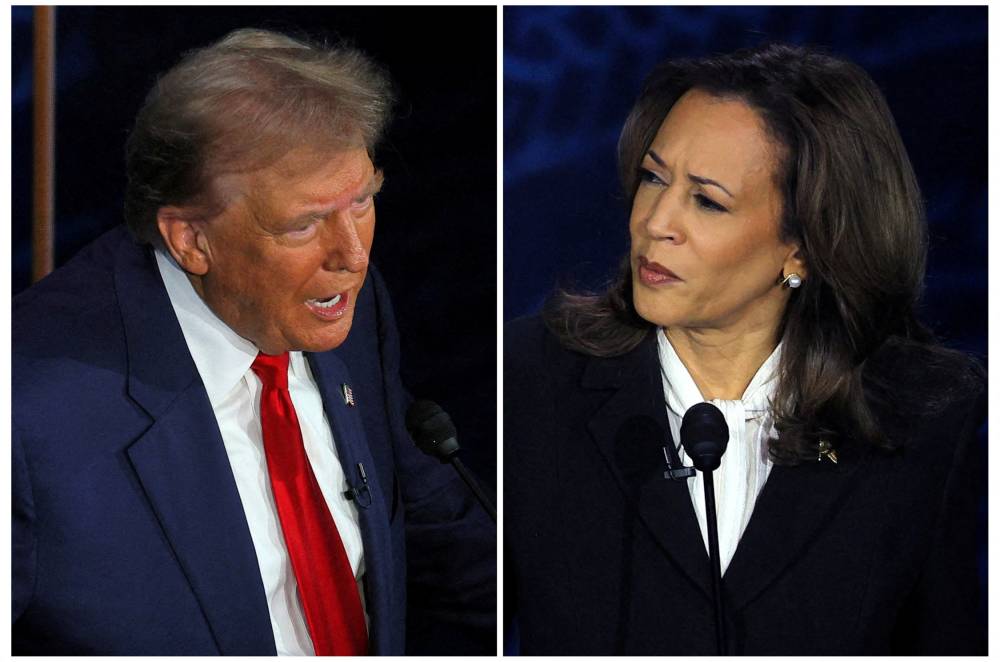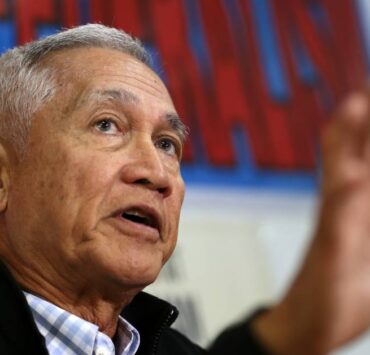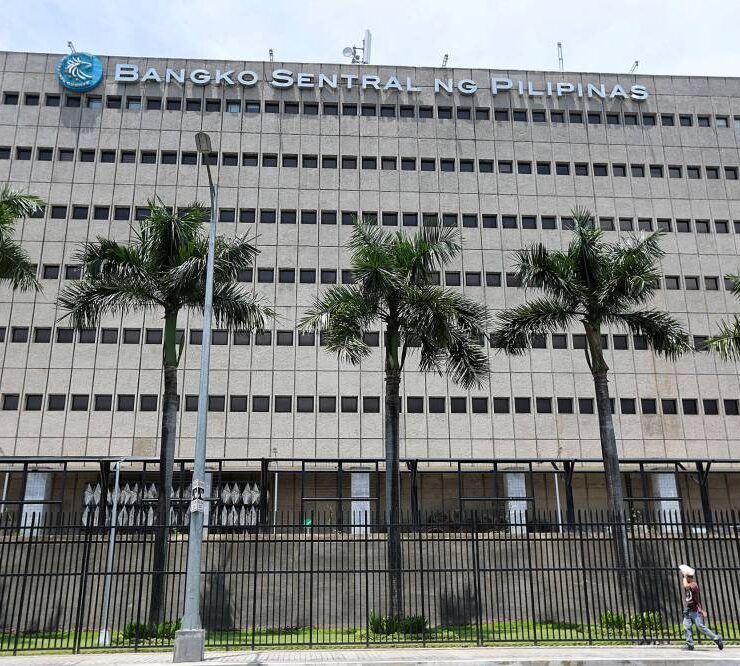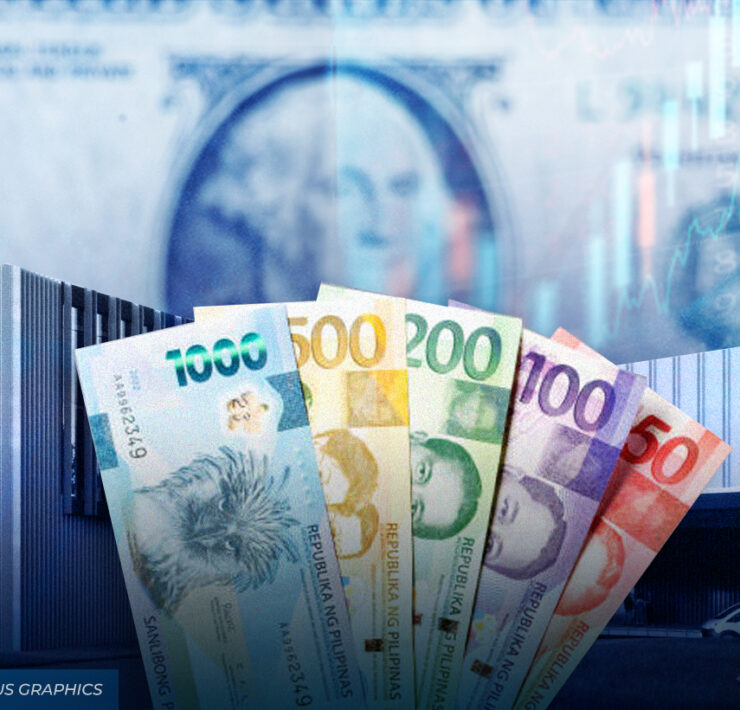Trump vs Harris: Views from PH biz

Four months ago, an assassination attempt on former US President Donald Trump may have just turned the tide in the upcoming presidential elections in the world’s most powerful economy, according to analysts.
With the high-stakes polls nearing, survey results in the United States are seeing a neck-and-neck battle between Trump and Vice President Kamala Harris, who quickly stepped in after incumbent President Joe Biden bowed out of the race. Although Harris has been leading by just 1 percentage point over Trump, both candidates still have thousands of undecided voters to convince.
And while the United States is likewise closely watching how the so-called swing states will vote, anxiety is spilling over to other economies and emerging markets, including the Philippines.
But how exactly would a Trump or Harris victory impact equities in a country that is 14,000 kilometers away from Washington?
On Friday—just days before one of the most important elections in the world—the benchmark Philippine Stock Exchange Index (PSEi) slipped by 2.34 percent week-on-week to 7,142.96. This is already down 5.5 percent from its recent peak of 7,554.68 on Oct. 7.
As expected, the downtrend the past few days was driven by uncertainty about the elections, as any major event and policy direction in the United States is expected to influence markets across the globe.

Jonathan Ravelas, veteran analyst and senior adviser at Reyes Tacandong & Co., says interest rates are likely to increase under a Trump presidency mainly due to his inclination toward hiking import tariffs to 10 percent, which can pull up the prices of goods.
“The dollar will get stronger with a higher interest rate because of an inflationary environment,” Ravelas tells the Inquirer. “What will happen to equities? As interest rates go up, equities will decline.”
Trade war
There is also a likelihood that Trump will continue the US trade war with China that he started in 2018, during which he raised import tariffs on the holder of the Most Favored Nation status. In turn, China hiked duties on US imports.
Fitch Ratings Inc. warns, however, that the impact of a prolonged trade war will have far-reaching impact.
“A renewed full trade war would be a material drag on global growth, be inflationary in the short-term, and could significantly alter economic momentum across the world,” Fitch Ratings says in its Fourth Quarter Risk Headquarters report.
While Harris has similar stringent measures lined up for China that may likewise result in an increase in interest rates, Ravelas clarifies that the speed at which prices will rise will be slower because of policy continuity.
This is why markets are more confident in a Harris victory: the interest rate environment will be more predictable, he says.
Fed independence
In a “Regional Market Focus” outlook report for the fourth quarter issued by Singapore-based DBS Bank and First Metro Securities, the Bangko Sentral ng Pilipinas (BSP) is expected to slash next year its key policy rate for overnight borrowing by a total of 100 basis points (bps) to 5 percent.
As with other factors, the Federal Reserve’s policy strategy will steer the BSP’s direction, and experts are anticipating another jumbo 50-bp cut by the American central bank this month.
Among the key policy differences between Trump and Harris is their approach toward the Fed.
The DBS-First Metro report says the Republican front-runner may prefer a chief who favors lower rates, thus leading to questions about the Fed’s independence and dampening investor confidence. The Democrats, meanwhile, are expected to take their hands off the Fed chief.
In the Philippines, rate cuts historically result in a more optimistic market, as proven by the recent entry of the PSEi into the bull territory. But as the Fed has yet to meet on Wednesday and Thursday, analysts say traders will likely stay on the sidelines.
Shift to cryptocurrency
Trump’s favorable stance toward cryptocurrency, which saw its popularity skyrocket during the height of the pandemic, may also increase uncertainty, according to Jayniel Carl Manuel, equities trader at Seedbox Securities Inc.
Under his leadership, Trump aims to make the United States the world’s cryptocurrency leader by loosening regulations.
Once this happens, Manuel says funds may shift from equities toward crypto, “as investors often look for the ‘fastest horse’ in terms of returns.”
“Cryptocurrency is proving to be a lasting asset class, and its growing acceptance means we must consider it within the broader context of fund rotation—not just between equities and fixed income, but also as a viable third asset class,” Manuel says in an email.
“This shift could lead to short-term movements in the local stock market as investors diversify into alternative assets,” he adds.
Locally, the Securities and Exchange Commission (SEC) has made it a point to crack down on unregistered and unlicensed cryptocurrency exchanges, including Binance, the largest crypto market in the world.
While it has moved forward with banning the crypto giant, the SEC has yet to implement rules on the market that has attracted at least 750,000 Filipinos.
Escalating geopolitical conflict
Ravelas warns, however, of another lingering factor that may have been overshadowed by interest rate and fiscal policies: the escalating war in the Middle East.
“People are forgetting that when there was a rate cut in ‘Sweet September,’ war still raged,” he says. “Geopolitical conflict heightened in October, and now there’s a risk that Israel may bomb Iran’s oil fields.”
Ravelas recalls how Russia’s invasion of Ukraine in 2022 devastated markets across the world, especially when it disrupted the oil market, causing prices of petroleum products to soar to all-time highs.
This resulted in Philippine stocks briefly diving before stabilizing at the 7,000 level. However, various factors ultimately dragged the PSEi toward 6,100, where it stayed in the early part of this year.
While both Harris and Trump have their own strategies to end the war, the latter seems to have more urgency, Ravelas notes.
“Trump doesn’t want war because he’s pro-business … so if the business is doing good, then the economy will follow,” he says. “But Kamala wants to be more diplomatic, and it will come at a cost: the US debt will expand.”
Overall impact
For DBS and First Metro, they are “indifferent” to the economic and regional impact of a Harris or Trump victory because of the Philippines’ status as an “important geopolitical ally.” But a Democrat win may still be the way to go.
“We believe a Harris victory will be good for [emerging market] equities, whereas a Trump win poses a potential negative risk due to potential tariffs and shifts in external trade dynamics,” the joint research report says.
Ravelas adds, “Overall, a Trump presidency could introduce more economic uncertainty and potential challenges for the Philippines, while a Harris presidency might offer more stability and continuity in economic policies.”





















